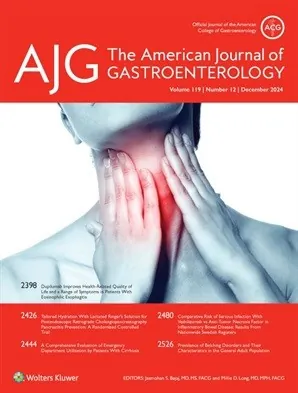
New Insights into Colonoscopy Preparation and Transgender Health: A December Report
2024-12-17
Author: Jia
Highlights from the December Report
The latest issue of The American Journal of Gastroenterology has unveiled significant clinical studies and reviews, shedding light on important health issues such as inadequate bowel preparation for colonoscopy, the health of transgender adults with cirrhosis, and the comparative effectiveness of two medications for ulcerative colitis.
Inadequate Bowel Preparation for Colonoscopy
In a meticulous meta-analysis encompassing 154 studies with a staggering 358,257 participants, researchers have identified key risk factors associated with inadequate bowel preparation (IBP) in colonoscopies. The extensive analysis unveiled 48 distinct risk factors, with sociodemographic indicators such as Medicaid insurance, obesity, current tobacco use, age (65 years or older), Black race, low education level, male gender, and unmarried status being linked to a higher likelihood of IBP. The authors of the study expressed hope that their findings could pave the way for the development of a predictive model to better identify high-risk patients, potentially leading to improved colonoscopy outcomes, decreased need for repeat procedures, and significant reductions in healthcare costs.
Health of Transgender Adults with Cirrhosis
Another noteworthy study examined the characteristics and health outcomes of commercially insured transgender adults with cirrhosis, highlighting that cirrhosis is notably more prevalent in transgender individuals. Alarmingly, many of these patients also face mental health challenges, including high rates of anxiety and depression—conditions that could complicate their overall health management.
Comparative Effectiveness of Medications for Ulcerative Colitis
Moreover, a groundbreaking study compared the efficacy of upadacitinib and tofacitinib in patients battling ulcerative colitis (UC). By analyzing data from a multi-institutional database, the researchers were focused on evaluating the risk of severe outcomes, such as needing intravenous steroids or colectomy, within both six and twelve months after treatment. The results demonstrated that upadacitinib offers better disease-specific outcomes at the 12-month mark compared to tofacitinib, marking a significant advancement in therapeutic options for UC patients.
Conclusion
These findings underscore the pressing need for improved healthcare strategies that cater to diverse patient populations. By addressing the risk factors for inadequate bowel preparation and the unique health challenges faced by transgender individuals, the medical community can enhance treatment approaches and ultimately improve patient care. As ongoing research continues to unveil critical insights, the December issue stands as a vital resource for healthcare providers and policymakers alike.




 Brasil (PT)
Brasil (PT)
 Canada (EN)
Canada (EN)
 Chile (ES)
Chile (ES)
 España (ES)
España (ES)
 France (FR)
France (FR)
 Hong Kong (EN)
Hong Kong (EN)
 Italia (IT)
Italia (IT)
 日本 (JA)
日本 (JA)
 Magyarország (HU)
Magyarország (HU)
 Norge (NO)
Norge (NO)
 Polska (PL)
Polska (PL)
 Schweiz (DE)
Schweiz (DE)
 Singapore (EN)
Singapore (EN)
 Sverige (SV)
Sverige (SV)
 Suomi (FI)
Suomi (FI)
 Türkiye (TR)
Türkiye (TR)